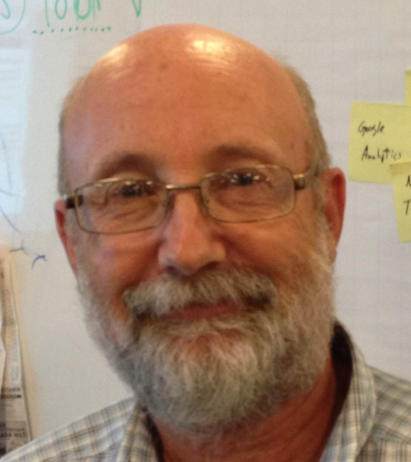Woody Zuill has been programming computers for 30+ years, and works as an Agile Coach and Application Development Manager for Hunter Industries, a manufacturer of high quality and innovative irrigation products. His team is the originator of the Mob Programming approach to teamwork in software development. He's considered one of the founders of the "#NoEstimates" discussion on Twitter. Over the last 15+ years he has worked as an Agile Coach, Application Development Manager, Trainer, and Extreme Programmer. He believes that code must be simple, clean, and maintainable so that we can realize the Agile promise of Responding to Change, and that we must constantly "Inspect and Adapt". He has a passion for taking code that is hard to maintain and cleaning, refactoring, and bringing it back into a manageable state.
Chapters:
- - Dave introduces the show and Woody Zuill
- - The change Woody has seen over his career
- - Early experiences with working for other people - foreshadowing Agile
- - Woody and the concept of Mob Programming
- - Woody formulation for improvement: "Turn up the good"
- - The influence of Kent Beck and others, particularly around Extreme Programming and Agile on Woody
- - Woody's Interaction with Llewellyn Falco strong-style pairing - "For an idea to go from your head into the computer it MUST go through someone else's hands"
- - Woody's definition of value and software for self vs for others, incremental improvmenet
- - Learning to solve problems with software incrementally and just in time
- - Agile as a way of life - Woody and woodworking
- - Woody's story of failure - unpleasant surprises from inadequate dependencies and unpleasant processes
- - Woody's greatest success - Mob Programming - "If you allow people to excel at work they do, they're going to excel at the work they do. You need to find a way to just allow that to happen"
- - Woody's other greatest success - Hardcore debugging, Removing things that don't add value, get rid of the waste
- - The #NoEstimates movement - conversations and questioning dogma
- - "Baby steps toward better" and "turning up the good"
- - How Woody stays current with what he needs to know
- - Woody's book recommendation
- - The things about which Woody is most excited
- - The (absence of) sources of pain in Woody's life and work
- - Woody's top 3 tips for delivering more value
- - Keeping up with Woody
- - Farewell
Resources:
- Woody's Blog
- Mob Programming
- Kent Beck
- Martin Fowler
- Robert C. Martin "Uncle Bbo"
- Ron Jeffries
- Llewellyn Falco
- Llewellyn Falco - strong-style pairing (Driver, Navigator Model)
- Lean Software Development: An Agile Toolkit - Mary Poppendicka and Tom Poppendick
- Ron Jeffries on #NoEstimates
- The Pareto Principle
- Russell Ackoff - "Managers who don't know how to measure what they want settle for wanting what they can measure."
- Richard Feynman - “It doesn't make a difference how beautiful your guess is. It doesn't make a difference how smart you are, who made the guess, or what his name is. If it disagrees with experiment, it's wrong.”
- The Systems Bible: The Beginner's Guide to Systems Large and Small - John Gall
- Systemantics: The Underground Text of Systems Lore - John Gall
- Alan Cooper on Developer On Fire
- Extreme Programming Explained: Embrace Change - Kent Beck and Cynthia Andres
Woody's book recommendations:
- The Systems Bible: The Beginner's Guide to Systems Large and Small - John Gall
- Systemantics: The Underground Text of Systems Lore - John Gall
- Extreme Programming Explained: Embrace Change - Kent Beck and Cynthia Andres
Woody's top 5 (3, sir) tips for delivering more value:
- Small bits
- Done quickly
- So you can steer
